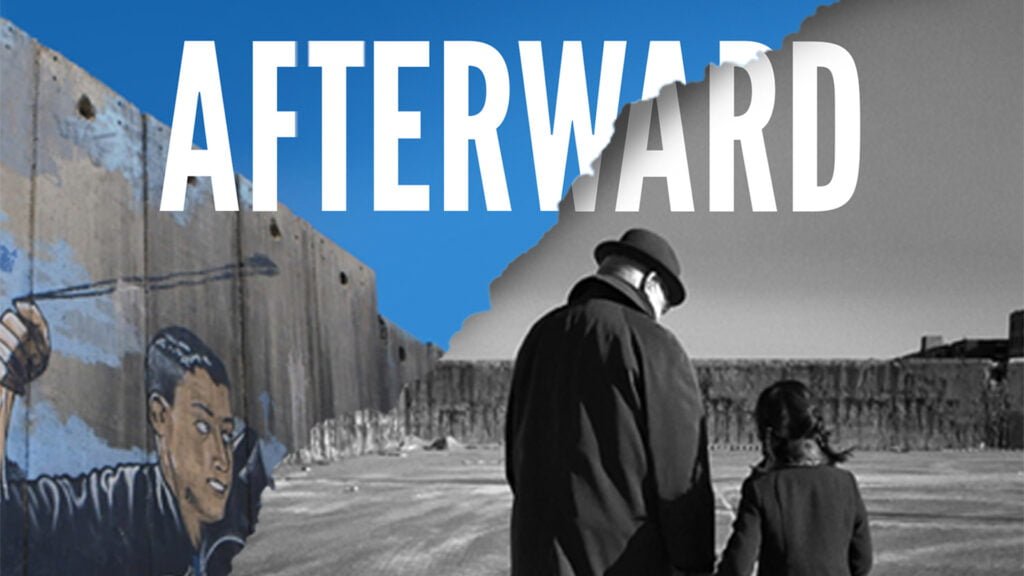
Afterward
Ofra Bloch’s documentary “Afterward” connects present and past traumas through childhood memories, her uncle’s experience in the Holocaust, and her growing up in Israel fearing Palestinians. However, even if the Israeli occupation and the Holocaust evoke deep feelings of anger or sadness within Bloch herself, it does not make them any more comprehensible from certain angles taken by this film.
With a background in psychology, Bloch talks to Germans, fellow Israelis and Palestinians about what they have seen. She looks at the dichotomies of victimhood and oppressor; the losses on all sides; the pain that lasts generations; and the stories we tell ourselves to justify misguided actions. The transitions, like talk therapy, are not always clean. Stream-of-consciousness confessions might come out in starts and fits. The heady film always feels a little aimless, skipping along between subjects’ testimonies from that of a reformed Neo-Nazi skinhead to that of a Jewish artist who was protested and persecuted for creating a Holocaust memorial.
Bloch takes her background as an entry into these topics sometimes quite literally. She employs a Michael Moore like approach to documentary filmmaking, putting herself in nearly every frame of this movie either leading the camera to her next interview, having a heart to heart with her subjects or walking into a potentially tense altercation in the street. In one somewhat awkward moment she inserts herself into a Palestinian protest against occupiers by asking if someone speaks English or Hebrew.
Her intentions are good but occasionally self-serving. The movie is as much about her as it is about figuring out why her family has experienced so much trauma throughout history and whether violence today could affect generations down the line.
When she strays too far off the beaten path Bloch returns to the bittersweet motif of walking with her uncle carrying ice home to his refrigerator when she was a child a scene that takes on heavier meaning every time we see it as she reveals more about his backstory. It is an effective emotional cue for how much loss has been suffered and continues being imposed.
The film jumps back and forth between present day and history; you will have to keep up or assume time just has a bad habit of repeating its worst qualities. Some points get lost in between some of the film’s hotter discussions like the idea that part of why Germans are still haunted by the Holocaust today is because many from that generation have refused to acknowledge or discuss it at all.
As more generations come up, there is mixed shame, resentment or inherited disillusionment. Bloch does not stick around to recommend “we should talk about this more,” only musing on it before moving onto her next set of ideas.
Can you ever heal from an event like that? Or forgive a population so comfortably ignorant or supportive of your people’s persecution? The documentary does not seem to have a clear answer because most of its interview subjects have not figured that out for themselves, either. In this sense, “Afterward” feels like the first therapy session a good starting point, but with many more hours ahead.
Watch Afterward For Free On Gomovies.
.jpg?w=1024&resize=1024,1024&ssl=1)
.jpg?w=1024&resize=1024,1024&ssl=1)
.jpg?w=1024&resize=1024,1024&ssl=1)
.jpg?w=1024&resize=1024,1024&ssl=1)
.webp?w=1024&resize=1024,1024&ssl=1)
.jpg?w=1024&resize=1024,1024&ssl=1)
.jpg?w=1024&resize=1024,1024&ssl=1)
.jpg?w=1024&resize=1024,1024&ssl=1)